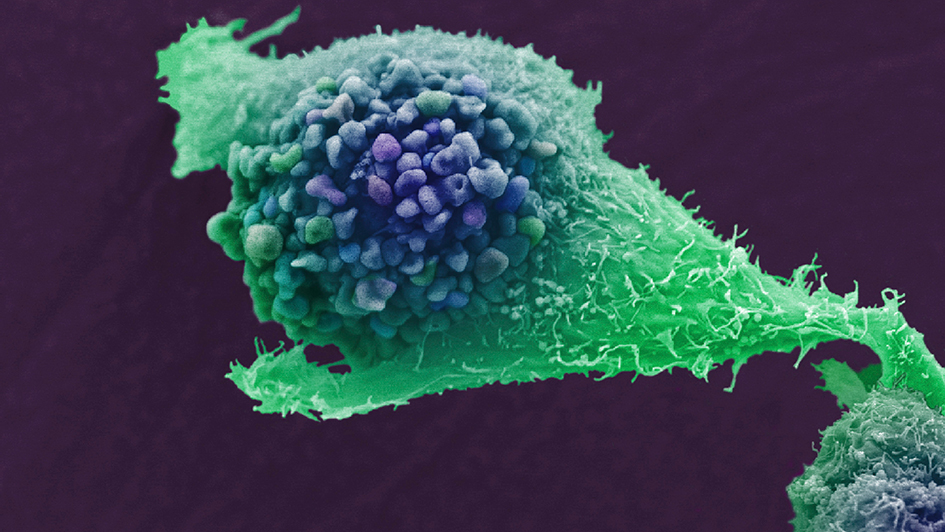
In what they claim is the largest study of its kind to date, an international team of scientists has identified a gene mutation in patients with prostate cancer that increases their risk of death more than threefold, and increase the likelihood of relapse nearly sevenfold. The research results, reported in the Proceedings of the National Academy of Sciences (PNAS), also suggest that some prostate cancer patients may respond to treatment using an existing breast cancer drug combined with immunotherapy.
“Our study really got under the bonnet of prostate cancer to understand the ‘engine’ driving tumor growth and explore how a wide range of genes affect the disease and its response to treatment,” stated study co-author Johann de Bono, MD, PhD, Regius professor of cancer research at The Institute of Cancer Research, London, and consultant medical oncologist at The Royal Marsden NHS Foundation Trust. “We identified one particular genetic mutation that seems to indicate that tumors are going to be very aggressive, and that the affected men need the most intensive treatment we have available.”
The collaborating research team, based in the U.K., U.S., Switzerland, and Italy, reported its results in a paper titled, “Genomic correlates of clinical outcome in advanced prostate cancer.”
Primary and metastatic castration-resistant prostate cancers (mCRPC) have previously been shown to fall into genomic subtypes, and trials are now ongoing to test targeted treatments, such as PARP inhibitors and AKT inhibitors, in patients with particular gene mutations, the authors wrote. The genomic and histopathological features of prostate cancer have also been linked with poor disease prognosis, but a comprehensive examination of all cellular, tissue and genetic features and their association with mRCPC outcome hasn’t been carried out.
To try and identify the most important prognostic markers in mCRPC, the investigators undertook a complete and comprehensive analysis of genetic, molecular, cellular, and clinical outcomes data from 444 tumor samples, taken from 429 patients. They integrated data from whole exome sequencing, gene expression, and histopathological analyses, in combination with patient survival, and duration of treatment with the androgen receptor (AR) signaling inhibitor (ARSI) drugs enzalutamide and abiraterone acetate. “A key novelty of this dataset is the opportunity to correlate contemporaneously-obtained comprehensive genomic profiles with clinical outcomes,” the researchers wrote. “We focused our analysis on eighteen of the most commonly altered genes and pathways.”
Findings from the integrative analysis approach indicated that patients with mutations in the retinoblastoma (RB1) were 3.3 times more likely to die as men without RB1 alterations, and were also 7.7 times more likely to relapse on standard therapy. “Importantly, we find that RB1 loss is the only genomic factor that is significantly associated with both survival and time on ARSI therapy in mCRPC,” the investigators wrote. “We find that RB1 loss is the molecular factor most strongly associated with poor clinical outcomes in a contemporary cohort, highlighting the need for further investigation into mechanisms of resistance to AR therapies induced by loss of RB, and potential therapeutic strategies targeting this mechanism.”
Mutations in p53 and the androgen receptor gene were linked with an increased risk of relapse on abiraterone or enzalutamide therapy. “TP53 and AR alteration were also associated with shorter duration of ARSI therapy, though the association was not as strong as for RB1 loss and did not extend to survival,” they continued. The AR findings indicate that targeting androgen receptor signaling using current ARSI approaches may not be complete, and that “further targeting of the protein may be clinically beneficial in patients who develop resistance to these agents.”
Conversely, while mutations in the DNA repair genes BRCA1, BRCA2, and ATM, and in PI3K, were relatively common, they weren’t linked with treatment success or overall survival. “We found no association between alterations in PI3K pathway genes or alterations in the DNA damage repair genes BRCA2, BRCA1, and ATM with overall survival and time on treatment with an ARSI,” the authors commented.
Interestingly, tumors with mutations in CDK12, a gene that is linked with positive responses to immunotherapy, also commonly carried mutations in CDK4 and CCND1, which are targets of the breast cancer drug palbociclib. This finding suggests that combining prostate cancer with palbociclib may be a promising therapeutic approach for men with this combination of gene mutations. “Our research could also open up various new approaches to prostate cancer treatment, and offers the intriguing suggestion that some patients could benefit from immunotherapy alongside an existing breast cancer drug,” de Bono noted. “That’s a great example of how genetic research can find the common links between cancers, and ensure research into one cancer type can also benefit patients with other tumors.”
“This exciting study has identified which features of advanced prostate tumors are the most important for treatment and survival—and has picked out one gene mutation in particular which has an especially serious adverse impact on how long patients live,” added Paul Workman, FMedSci, FRS, CEO at the Institute of Cancer Research in London. “The crucial thing now is that we make use of this information, by developing a test to identify affected men and to make sure they receive the best treatments we have available today, while also focusing our efforts on improving options for the future.”

